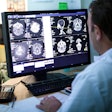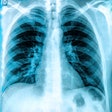Dear AuntMinnie Member,
Do patients really want to talk to a radiologist about the results of their exams? That concept has been a centerpiece of recent efforts to convince radiologists to reach out more to patients, but a new study indicates that patients may not be so enthusiastic about the idea.
Researchers from the University of California, San Francisco (UCSF) surveyed more than 600 patients who received outpatient CT and MRI exams, asking them their preferred method of receiving imaging results, and whether they preferred to hear from their referring physician or the radiologist.
Most of the patients said they would prefer to hear about their results from their referring physician -- a potential blow to patient outreach efforts. But there was a silver lining to the study: 85% wanted to see their medical images, indicating there could still be a way for radiologists to edge their way into the care process. Read more by clicking here for an article in our Imaging Leaders Community. The story has also prompted a lively discussion in our Forums -- just click here to join the conversation.
For another important development in radiology practice management, check out a new story on the June report from the Medicare Payment Advisory Commission, or MedPAC, which provides guidance to the U.S. Congress on Medicare payment issues.
The annual MedPAC reports are often harbingers of bad news for radiology in terms of reimbursement cuts, but this month's report largely ignored the specialty, instead focusing on the development of changing payment models for Medicare. Read more by clicking here, or visit the community at leaders.auntminnie.com.
New Birnholz
Finally, be sure to check out our Ultrasound Community for the latest Practice of Ultrasound article by Dr. Jason Birnholz.
In his newest installment, Dr. Birnholz examines compact ultrasound technology, which has been revolutionizing patient care. While compact ultrasound sometimes has been positioned as a less-versatile "stethoscope of the future," Dr. Birnholz believes that compact systems should be able to perform largely the same exams as fixed-position, office-based equipment, just in a smaller package.
Learn more about what he discovered in a review of new technology by clicking here, or visit the community at ultrasound.auntminnie.com.



















